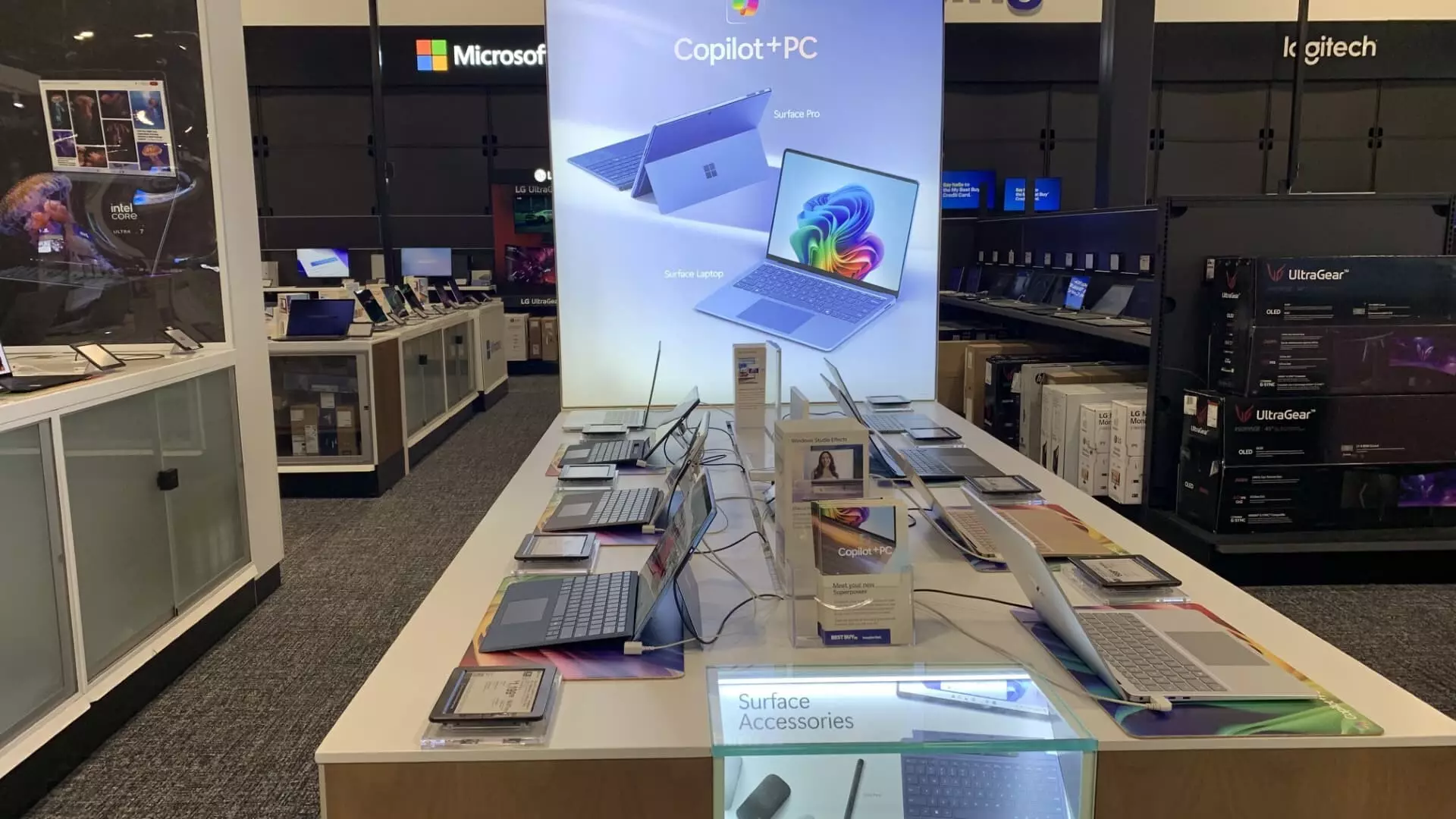Amid a fluctuating retail landscape, Jim Cramer’s Charitable Trust recently made a strategic decision to divest 165 shares of Best Buy, valued at approximately $86 each. This transaction reduces the Trust’s total holding of Best Buy (BBY) shares to 600, resulting in a decrease in the stock’s proportion in the portfolio from 1.9% to about 1.5%. This action isn’t just a mere adjustment; it reflects an acute awareness of the broader economic conditions affecting electronic retail and the potential impact of impending tariff policies under the incoming administration of President-elect Donald Trump.
Since October, Best Buy has faced an ongoing decline in share price, driven by a combination of factors including a sluggish retail environment for electronics and rising concerns over potential tariffs on goods imported from China. These external pressures underscore the vulnerability of Best Buy’s business model, which relies on robust housing turnover for its higher-ticket items, such as home appliances and entertainment systems. With mortgage rates escalating even as the Federal Reserve has opted to cut interest rates, Best Buy’s sales appear tethered to a precarious balance between housing market recovery and consumer electronics demand.
Investment Philosophy: Protecting Gains
The decision to sell a portion of Best Buy shares illustrates a disciplined investment philosophy—one that emphasizes locking in gains rather than allowing potential profits to erode. Following a cautious review, it was noted that lingering issues such as high mortgage rates and the underperformance of high-tech personal computers may present temporary setbacks for Best Buy. Yet, these transient challenges warrant a tactical retreat to safeguard accrued profits.
Amidst this brewing uncertainty, there looms an impending earnings report from Best Buy that carries the risk of providing unfavorable insights into same-store sales. Such revelations could further exacerbate the company’s challenges, prompting the Trust management to exercise prudence by trimming its position. By doing so, they intend to secure an average gain of approximately 8% on shares initially acquired in early 2024, showcasing a commitment to careful risk management.
Competitive Landscape: The Rise of Giants
As retail earnings season unfolds, an emerging trend suggests that industry titans, including Walmart and Club names like Amazon and Costco, are expanding their market share significantly. The recent performance of Target, which suffered a notable profit miss and a consequential market response reducing its stock value by over 20%, exemplifies the fierce competition in the sector—where larger players are increasingly dominating.
Best Buy finds itself in a challenging position, competing against these retail giants who not only possess substantial resources but also the agility to adapt to changing consumer behaviors. While niche retailers like TJX Companies and Williams-Sonoma enjoy relative insulation from massive market shifts, Best Buy must contend with the realities of competing in the electronic space against formidable adversaries. The dynamics of electronics sales are particularly brutal as technology evolves; consumers frequently reassess their purchasing habits, often favoring platforms that can provide a seamless shopping experience, whether brick-and-mortar or online.
In light of the current market realities, the decision by Jim Cramer’s Charitable Trust to decrease its holdings in Best Buy signifies a proactive response to a turbulent retail environment. By locking in gains and mitigating exposure to potential negatives tied to earnings reports, the Trust exhibits an astute awareness of market dynamics and competitive pressures.
Investors would do well to consider these evolving factors when assessing their engagement with Best Buy. Remaining alert to macroeconomic shifts, consumer sentiment, and competitive positioning will be essential for navigating the intricate landscape of retail. As the market continues to oscillate, the balance between risk and opportunity will define investment strategies in companies like Best Buy, steering them through both challenging phases and favorable conditions.

